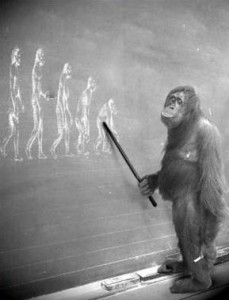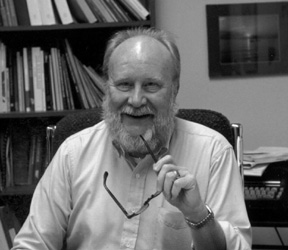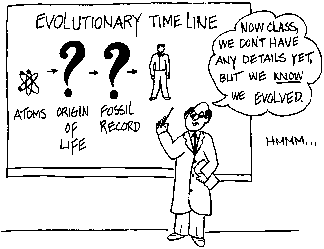
In a word, “math” more specifically. “probability.” Darwinian evolution by natural selection and varying mutation following the miraculous accidental formation of the first self replicating molecule is highly improbable. In mathematics such probabilities are labeled absurd. For that reason, noted Astrophysicist Fred Hoyle famously said,
The chance that higher life forms might have emerged in this way is comparable with the chance that a tornado sweeping through a junk-yard might assemble a Boeing 747 from the materials therein.[1]
David Berlinski earned a PhD in philosophy from Princeton University and was later a postdoctoral fellow in mathematics and molecular biology at Columbia University. He offers the following:
I have been reading Berlinski and I take him seriously. Consider this:
It is this destructive dilemma that Dawkins calls the Ultimate Boeing 747 gambit. The appeal to a Boeing 747 is meant to evoke a lighthearted quip attributed to the astrophysicist Fred Hoyle. The spontaneous emergence of life on earth, Hoyle observed, is about as likely as a tornado sweeping through a junkyard and assembling a Boeing 747 out of the debris. Although an atheist, Hoyle was skeptical about Darwin’s theory of evolution, and Dawkins passionate in its defense. Since the junkyard expresses with rare economy precisely the odds favoring the spontaneous appearance of life—they are remarkably prohibitive on virtually every calculation—it has been an irritation to Dawkins ever since it made its appearance. With their consciousness unraised, a great many people have evidently concluded that when it comes to the origins of life, the junkyard is all that Darwin offered. [2]
I would add this requirement to the 747 dilemma, “First, you need to get your own junk,” suggesting that one needs to explain the origin of the junkyard as well. “Abiogenesis isn’t evolution” is the typical atheist rejoinder… My answer, “so what?” It is necessary for naturalism. There can be no “natural selection and varying mutation” without preexisting reproducing life. If you haven’t explained that yet, then you haven’t begun to address origins. The evidence leads to some sort of creation event via intelligent design, that is, unless airplanes really can be assembled by tornadoes. It’s actually much worse. Even simple bacteria are more complex than a Boeing 747. The mathematical probability of reproducing molecules forming on the primordial earth is so described below by David A. Plaisted, a PhD Computer Scientist:
Biologists currently estimate that the smallest life form as we know it would have needed about 256 genes. A gene is typically 1000 or more base pairs long, and there is some space in between, so 256 genes would amount to about 300,000 bases of DNA. The deoxyribose in the DNA “backbone'” determines the direction in which it will spiral. Since organic molecules can be generated in both forms, the chance of obtaining all one form or another in 300,000 bases is one in two to the 300,000 power. This is about one in 10 to the 90,000 power. It seems to be necessary for life that all of these bases spiral in the same direction. Now, if we imagine many, many DNA molecules being formed in the early history of the earth, we might have say 10 100 molecules altogether (which is really much too high). But even this would make the probability of getting one DNA molecule right about one in 10 to the 89,900 power, still essentially zero. And we are not even considering what proteins the DNA generates, or how the rest of the cell structure would get put together! So the real probability would be fantastically small. (David Plaisted)
In a probabilistic sense, to believe this happened is absurd. It is a tiny probability and I hope anyone understand that an event with a probability of 1/10^89 (one chance out of ten with eighty-nine zeros behind it) is not at all likely to happen. It’s mathematically absurd. Intelligent Design theory is the only option that fully makes sense of the evidence. I am not an expert but I do read both sides carefully. I am willing to contemplate that God used a process to form human bodies (Genesis 2:7) but naturalism just seems mathematically and philosophically absurd.
Notes
- Fred Hoyle, “Hoyle on evolution,” Nature, Vol. 294, No. 5837 (November 12, 1981), 105
- David Berlinski, The Devil’s Delusion: Atheism and Its Scientific Pretensions, [2nd ed. (New York: Basic Books, 2009),140-141






